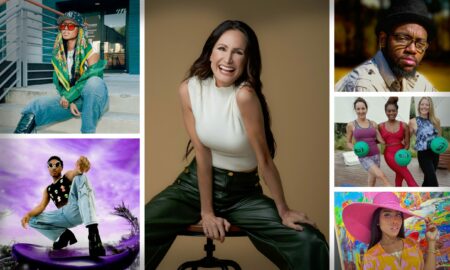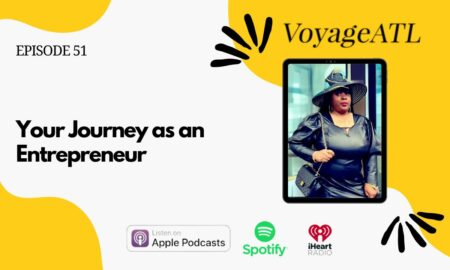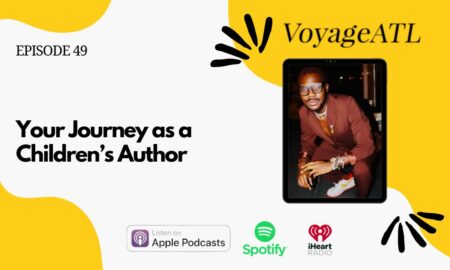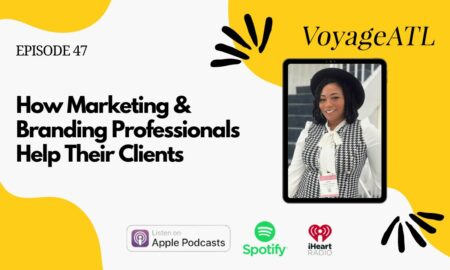
Today we’d like to introduce you to David Windecher.
David, let’s start with your story. We’d love to hear how you got started and how the journey has been so far.
I migrated to Miami Florida at the age of 10 from Buenos Aires Argentina. Poverty leads to my first arrest at the age of 11.
I was placed on probation, required to perform community service, pay court and probation dues and report to the judge monthly. This was my first experience with the criminal justice system – a system that placed an impoverished child on probation for a theft charge. The system didn’t help me in any way rehabilitate rather it made me resent poverty and sent me spiraling into the darkest years of my life.
At 13, I witnessed my first murder. When I started middle school, I was constantly jumped on Fridays as I walked home from school. At 14, I joined a gang for protection. At 16, I dropped out of school not because I wasn’t interested in education, but rather because the compulsory education system could not stimulate me. I was being taught a curriculum in 9th grade which I had surpassed in 5th grade in Argentina.
I began selling drugs because I was unable to obtain any employment opportunities due to my criminal record. I fought poverty by committing criminal acts aimed to help my family out of our financial struggle. By the time I was 19, I had been arrested 13 times and spent nearly eight months incarcerated. It was those experiences that motivated me to pursue a legal education in order to become a lawyer and focus on criminal justice reform.
The most important thing I learned from my experience in the criminal justice system is that it inherently had a racial and discriminatory thrust. Hispanics and African Americans were treated much differently than their Caucasian counterparts. Black and brown folks seemed to be punished severely compared to white folks.
Financial resources, not culpability, shape outcomes in the criminal justice system. You could be guilty and rich and have a much better chance of being acquitted than someone who was poor and innocent. I pursued a legal education. It took several years in excess of the required time frame due to my criminal record. I published an autobiography – The American Dream | HisStory In The Making – which portrays the difficulty of obtaining the American Dream as an impoverished minority.
The book is available on Amazon in paperback, digital and audio formats. I founded a non-profit organization – Rehabilitation Enables Dreams (RED Inc.). Our mission is to eliminate the recidivism of America’s marginalized youth by intervening at the onset of criminal behavior and building bridges of social advancement through education, support and community partnership.
At RED, we are focused on eliminating recidivism through social, civic and financial literacy modules. We have created a classroom atmosphere inside the courtroom, and we treat nonviolent individuals as students rather than criminals. RED is an evidence-based restorative justice program operating to eliminate traditional methods of prosecution, specifically probation supervision, in regard to the adjudication of individuals charged with nonviolent criminal violations.
We understand that our criminal justice system could be much more effective and efficient. The ultimate goal is to eliminate probation supervision for individuals charged with nonviolent crimes such as Trespass, Loitering, Disorderly Conduct, Possession of Marijuana, Theft and the like.
Restorative Justice programs benefit our community as a whole. It doesn’t matter if one is right of center or left of center. RED benefits the entire community by developing individuals into contributing members of society and assisting in a more fiscally responsible use of our state’s general tax fund.
Has it been a smooth road?
It has felt more like a dirt and rock-filled road. Having 13 arrests on my criminal history has caused me to have to attest that I am of fit character repeatedly. The most difficult challenge was matriculating into law school. I applied to 50 law schools, and 48 of them immediately turned me down.
Georgia State University and John Marshall Law School were the only ones interested in my money. Things didn’t work out with GSU; however, JMLS gave me a chance, and I ran with it. Same goes for applying for the bar exam.
Florida made me wait almost 18 months to swear-in after I successfully sat for the state exam. Florida brought me in for an investigative hearing in which members of the board of bar examiners asked me pointed questions aimed to determine whether I was of a fit character to practice law.
No one should have to endure what I experienced to secure a career. This is exactly why people lose hope.
We’d love to hear more about your practice.
I’m a criminal defense attorney. I represent individuals facing misdemeanor and felony charges. My favorite practice area, which ties into criminal defense, is expungement procedure (now known as a restriction).
The reason I love handling expungements is because it brings a sense of finality to an unfounded criminal charge and it restores a person’s reputation back to whole. I also relate really well with my clients as they understand I will never judge them for making a mistake and violating the law. I mean. Who am I to speak? I’ve got 13 arrests on my criminal history.
That said, I seldom have repeat clients as I try to pour into them in a way that allows them to self-actualize. I am a sort of mentor for my clients given my experience with the criminal justice system. They see me and think that if I can become an attorney with my criminal history, they too can turn things around and make their dreams come true.
Is our city a good place to do what you do?
Atlanta is a great place to be a criminal defense attorney because the state of Georgia as a whole has been dropping the ball historically with regard to the criminal justice system.
40% of our population has a criminal record. We have over 200,000 people on probation which is by far the highest in the entire nation. It is only recently since Governor Deal took office that the criminal justice system has shifted from punitive to rehabilitative in its focus with regard to nonviolent offenders.
That said, there are tons of people out there with criminal records that could be expunged/restricted. Smaller jurisdictions still have no clue what criminal justice reform actually means. So, there are so many opportunities to help people.
In Georgia, we are one degree separated from the epicenter of a nationwide problem – recidivism. I love being here because our state has been so broken for decades that it provides us, progressive-minded individuals, to assist in bringing forth meaningful criminal justice reform.
Contact Info:
- Address: 75 W. Wieuca Road NE, Atlanta, Georgia 30342
- Website: www.windecherfirm.com
- Phone: (404)720-0940
- Email: david@windecherfirm.com
- Instagram: davidleewindecher
- Facebook: xdavidleewindecherx
- Twitter: davidwindecher






Getting in touch: VoyageATL is built on recommendations from the community; it’s how we uncover hidden gems, so if you know someone who deserves recognition please let us know here.



















